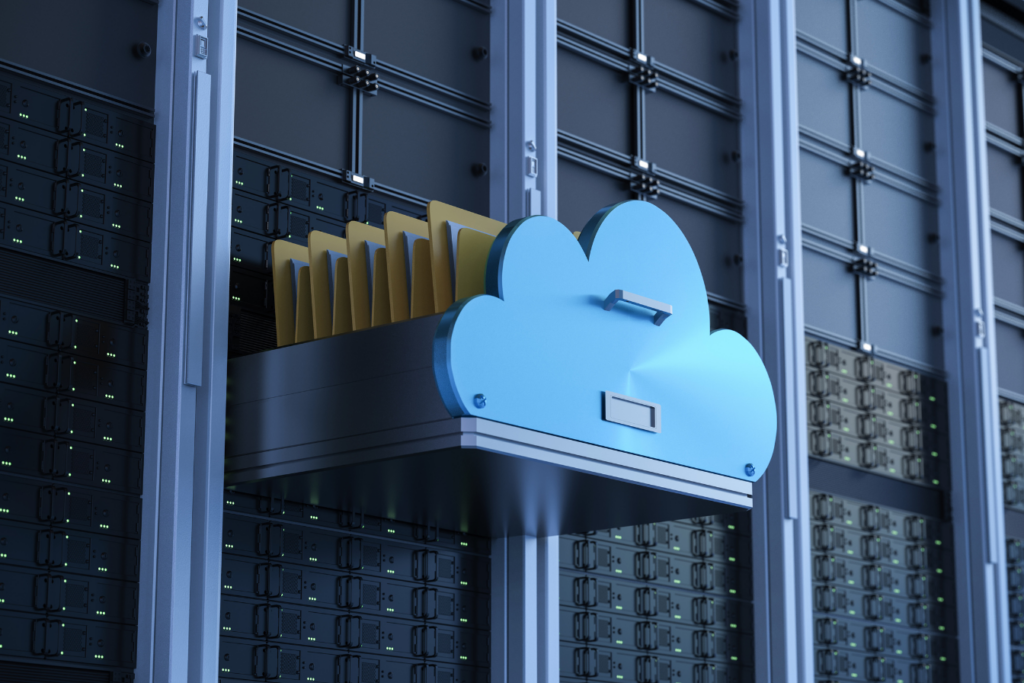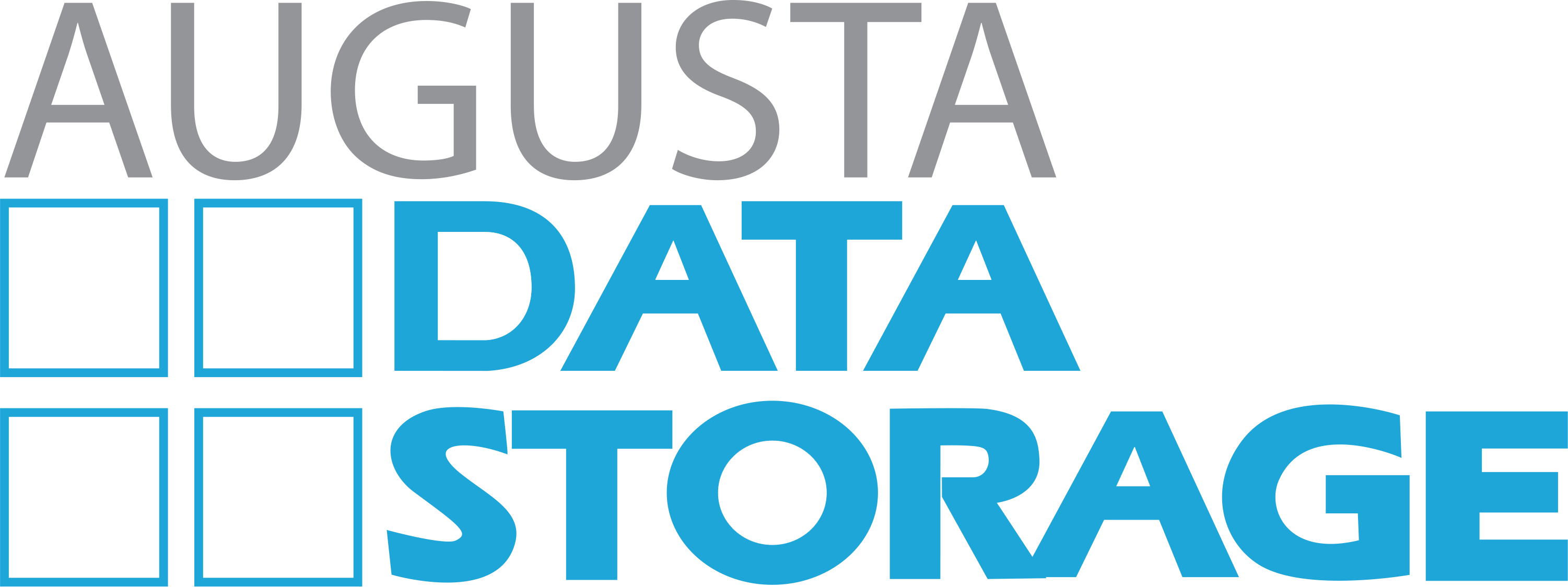Records Storage vs. Cloud Storage: Which Method is More Secure?

When it comes to safeguarding your business’s valuable data, choosing between traditional records storage and modern cloud storage can be a daunting task. Each method comes with its unique benefits and drawbacks, and understanding these can help you make a best-fit decision for your business. We’re covering the pros and cons of each, the storage medium you should choose for your documents based on your needs, and sharing practical tips to help you protect your data effectively.
Traditional Records Storage
Traditional records storage involves physically storing documents in a secure environment, such as an on-site storage room or a dedicated off-site facility like Augusta Data Storage. Here are some pros and cons to consider:
Traditional Records Storage Pros:
- Tangible Access: You can hold, read, and understand physical records without relying on technology, reducing the risk of tech-related issues.
- Control: With traditional storage, you have complete control over your data. You can implement specific security measures and protocols to ensure your documents’ safety.
- Compliance: Some industries require physical record-keeping for compliance purposes, making this method non-negotiable in certain cases.
Traditional Records Storage Cons:
- Vulnerability to Disasters: Physical records are at risk of damage from natural disasters, such as fires and floods.
- Limited Accessibility: With physical documents, only those who have been granted permission will be able to access them. This can be an issue if you need to share or collaborate on files with remote team members.
- Cost: Maintaining a secure storage facility can be costly, especially if your business deals with large volumes of data.
This type of storage is ideal for documents that require a physical signature or need to be kept in their original form, such as legal papers and contracts.
Cloud Storage
Cloud storage is the practice of storing data in an online network of remote servers, known as ‘the cloud’. For many businesses the flexibility, ease of access, and affordability of this option make it more appealing than traditional storage, but digital archives still have their share of drawbacks. Here’s a breakdown of cloud storage pros and cons:
Cloud Storage Pros:
- Accessibility: With cloud storage, you can access your data from anywhere with an internet connection, making it ideal for remote work.
- Scalability: Cloud storage is highly scalable, meaning you can easily increase or decrease your storage space as needed.
- Disaster Recovery: Your data is safe from physical disasters as it is stored remotely.
Cloud Storage Cons:
- Security Risks: While cloud storage providers have robust security measures in place, there is always the risk of data breaches and cyber-attacks.
- Dependence on Technology: Cloud storage relies heavily on technology, so any issues with servers or internet connectivity can hinder access to your data.
- Compliance Concerns: Some industries may have strict regulations regarding data storage and may not allow for cloud storage.
Cloud storage is best suited for businesses that need to access their data from different locations and collaborate with remote team members. It also offers the added benefits of automatic backups and easy data sharing.
Striking the Balance: A Hybrid Approach
When it comes to the security of traditional records storage versus cloud storage, the answer isn’t straightforward. Both methods have their security advantages. Traditional records storage provides high security for sensitive documents, being less susceptible to cyber threats. It’s ideal for legal documents, confidential files, archives, and signed documents. However, it’s vulnerable to physical threats like fire, theft, or natural disasters.
Cloud storage, while susceptible to data breaches, offers robust security measures and protection against physical damage. The optimal choice depends on your organization’s specific needs. A hybrid approach, utilizing both methods, often offers the best solution for data protection.
Using a combination of physical records storage and cloud storage provides the flexibility of cloud storage while maintaining security.
When deciding what documents to store in each method, consider the following questions:
- How frequently will the data be accessed? Cloud storage may be more suitable if you need to access the data frequently.
- How sensitive is the information? For highly sensitive documents like contracts and legal paperwork, physical storage may offer better security.
- Are there any legal or regulatory requirements? Some industries or jurisdictions may have specific requirements for storing certain types of data.
- What is the budget and available resources? Cloud storage may require ongoing subscription fees, while physical storage may require space and maintenance costs.
By carefully considering these questions, you can determine the optimal storage solution for your specific needs and strike a balance between accessibility and security.
Here are some general rules of thumb:
Documents Suitable for Cloud Storage
- Project Files: Files related to ongoing projects that require collaboration and frequent updates.
- Digital Copies of Documents: Digital versions of paperwork that don’t need to be in their original form.
- Large Data Sets: Files that are cumbersome to store physically due to their size.
- Non-sensitive Company Information: Company documents that are not confidential or sensitive such as newsletters, brochures, etc.
Documents Suitable for Traditional Records Management
- Original Legal Documents: Contracts, deeds, and other legal documents that need to be in their original form.
- Confidential Files: Sensitive documents like personnel and medical records, which require high security and privacy.
- Archival Records: Old records that are seldom accessed but need to be preserved for historical or legal reasons.
- Signed Documents: Documents with original signatures, stamps, or seals.
The 3-2-1 Backup Method: An Ideal Strategy for Data Protection
The 3-2-1 backup rule is an easy-to-remember moniker for a common approach to keeping your data safe in any failure scenario. The concept is rather simple: 3 copies of your data, 2 local but on different mediums, and 1 offsite.
Understanding the 3-2-1 Rule
- 3 Copies of Data: It’s crucial to keep three copies of every piece of vital data. This includes the original data and two backups, which provide a failsafe if one backup copy fails or gets corrupted.
- 2 Local Backups on Different Mediums: These backups could be stored on different devices within the same office or home. For instance, you could store one on your computer and another on an external hard drive. This ensures that if one device fails, you still have another medium to turn to.
- 1 Offsite Backup: This final copy should be stored at a different location, such as a cloud storage service. This guards against the possibility of localized disasters, like a fire or flood, that could destroy both your original data and local backup copies.
By leveraging the strengths of both cloud storage and traditional records management, the 3-2-1 rule provides an excellent strategy for comprehensive data protection. It optimizes access while still ensuring the security of your data, offering protection against physical damage, cyber threats, and even unexpected system failures.
Trust Augusta Data Storage with Your Records
When it comes to secure data and record management, Augusta Data Storage has you covered. We offer both physical records storage and cloud storage options, ensuring that your data is safe, accessible, and managed effectively.
As a NAID-AAA certified business, we guarantee the highest level of data security, letting you focus on what matters most—running your business. Whether you’re looking to store sensitive documents or need a secure online space for digital files, we have the solutions to meet your needs.
Ready to secure your data? Contact Augusta Data Storage today and let us help you find the perfect balance between physical and cloud storage for your business.
